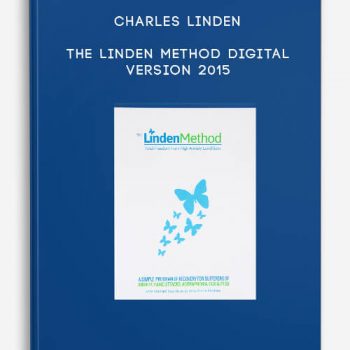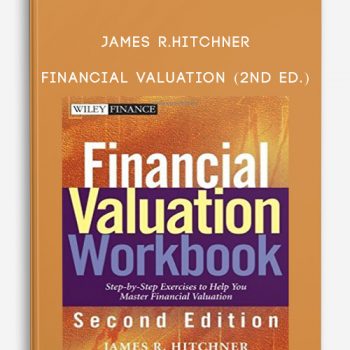
Financial Management for Beginner
Description
Basic financial planning is to running a business as knowing how to speak a given language is to visiting a foreign country. Many people know a few words, but they bumble around as tourists, making mistakes and then leave. A person who is going to be in for the long haul needs to be fluent in the local way of life, the advantages and disadvantages of different interactions and far more. This is the nature of business planning; it’s not enough to know you need to sell; you need to be able to plan out the entire process in order to be financially successful.
BASIC ACCOUNTING
The bread and butter of financial planning is knowing where a business has been. That means having a solid grounding in financial accounting and knowing what reports to pull to get the information needed. Without these records, you won’t know whether you are producing profit consistently, much less whether your business is growing or declining. Good financial planners have the ability to see red flags within the accounting records and use that information to create processes to avoid pitfalls in the future.
Different documents generated from the accounting records provide a foundation for the decision making process. These documents include the Income Statement, the Cash Flow Report and the Balance Sheet. Having a solid understanding on how these reports are constructed and what they say about a business’ health is key to knowing where to look for financial data. Trying to plan without this foundational knowledge is a mistake. It’s like trying to get out on a lake in a boat without an oar or outboard motor. You won’t get very far.
A good planning analyst knows, however, that the accounting statements are not the whole picture. They are only part of the story. Sometimes the issues that need to be resolved are buried in the business processes and accounting ledgers, and they only hint at what’s going on as transactions occur. A smart analyst goes beyond the reports.
In addition to the information generated for routine financial statements, special purpose reports are needed to support non-routine decisions about the business. These decisions can include whether to make or outsource a product or service, whether to replace existing machinery, whether to accept a special order, or even how to price products or services to survive difficult economic times. Knowledge of what costs are relevant to the specific decision and what qualitative factors should be considered can make the difference between a good decision and a poor decision.
THE PROFIT CENTERS OF THE BUSINESS
With the historical records identified and interpreted, the next basic step is understanding the profit centers of the business. These are the core activities of general sales and revenue for the company, and if they are limited or restricted, those revenue streams decrease or shut down. Since a business fundamentally needs profit to keep going and growing, the improvement of these profit centers is a primary goal of financial planning.
The interesting twist, however, is that profit for a business isn’t just made by focusing more on sales. Profit can be generated by being more efficient in production, by investing excess funds wisely, in addition to finding new markets and different ways of selling. Financial planning looks for all of these avenues and whether they are viable directions given the circumstances of the business.
MANAGING CASH
It may seem like an archaic term from an era before digital finance and the electronic age, but cash flow management can make or break a business. Any financial planning attempted without understanding cash flow is leaving a big, wide door open to problems. Annual financial reports don’t reflect the timing of when various funds go in and out of the business during its operating cycle. As a result, hiccups can occur if one doesn’t pay attention to having revenue available to pay bills and critical expenses. Thus, knowing how to use cash budgets covering short periods within the year can be paramount to succeeding in business.
One of the most demanding expenses with the least amount of flexibility is payroll. Employees expect to get paid in a timely manner, no matter what. If a business doesn’t generate sufficient funds by the date payroll hits, it either has to borrow or delay paychecks. Both situations must be avoided since employees don’t like to float their company, and banks will demand exorbitant interest rates for short-term bridge loans.
Cash flow can be interrupted very quickly, especially if a business works on thin profit margins. This risk frequently becomes apparent when a small business wins a big account and then desperately needs to manage cash until the big payment comes in. Often the business resorts to emergency borrowing to get through, eroding the potential profits before they’ve been earned. Cash management, added to financial management planning, would anticipate this issue and have reserves ready or a diversified enough portfolio so that the new account’s demands are offset by other more regular revenues coming in already.
LEVERAGING ASSETS
When starting a business, a good number of small business owners think of assets from the perspective of the store address/building, equipment for production, maybe the company car and furniture. It’s not the most creative perspective, but that’s often a reflection of an understanding of what can be a business asset. Strategic asset collection will often be far more diversified, bringing in larger assets to the company that are there for production as well as investment. These assets can then be used for additional business growth and financial leveraging.
Assets can serve as leverage in two different ways, but both are effective at raising money. First, assets can be used as collateral to secure loans. Second, assets increase the equity in a business (if they were not financed by loans in the first place), so additional investor or public financing can be raised against that equity if the business is structured accordingly. Understanding what leveraging options are available for a business is an important aspect of financial planning.
Compromising too much of a company’s assets for capital is essentially handing over ownership. Many small business owners with really good ideas and products have learned this lesson the hard way and then seen their life’s work taken away by an investor or new management.
TAXATION
Businesses don’t survive very long if proper tax management is ignored in their financial planning. The government can be very unforgiving when it believes that insufficient taxes are being paid on income or, worse, taxes are being avoided intentionally. The way tax laws are written at both the state and federal levels, there isn’t much room for error. Not paying attention to these rules, as well as appropriate tax planning to take advantage of available opportunities to save, means a business can end up losing money or end up paying penalties and tax interest. Both can eat away at the lifeblood of a company and a bad tax audit can bankrupt a business completely. Financial planning basics need to take into account how taxes work and what the company can do to stay on the right side of the law.
LONG-TERM BUSINESS STRUCTURE
Most small businesses start off as sole proprietorships or partnerships. These are common forms of business structure that are easy to initiate and fit the size of the company during its initiation. However, over time the business will grow and additional structure will be needed. For liability reasons, ownership and management will want to restructure the business so that it becomes its own entity versus a personal financial extension of the owners.
Financial planning has a big influence in this field helping decision-makers choose and plan out the best way to evolve the company to the next stage. Whether it’s simply merging sole proprietorships into a partnership or taking the big dip and becoming a full-blown S-corporation, there are hoops to jump through and challenges to navigate, as well as missteps to avoid legally. This is not a situation where business owners want to go in blindly, just guessing what something might be and then hoping to fix things as the business moves along.
A financial planner, especially a planner with advanced education such as an MBA with an Accounting specialization or a Master of Accountancy, can be a great asset to a small business, especially in making the right decisions early on that helps the company grow exponentially down the road. The financial planner has to be versed sufficiently in the basics of business financial accounting as well as how to identify alternatives available in different financial management scenarios. Option and choice identification is the key service a financial planner provides to a small business client. They use their unique perspective to inform the strategy of the business. This partnership helps a business grow and makes the financial planner an integral part of the health of the organization as well.
Financial Development Course
Financial development means some improvements in producing information about possible investments and allocating capital, monitoring firms and exerting corporate governance, trading, diversification, and management of risk, mobilization and pooling of savings, easing the exchange of goods and services.













Lord –
This is Digital Download service, the course is available at Coursecui.com and Email download delivery.